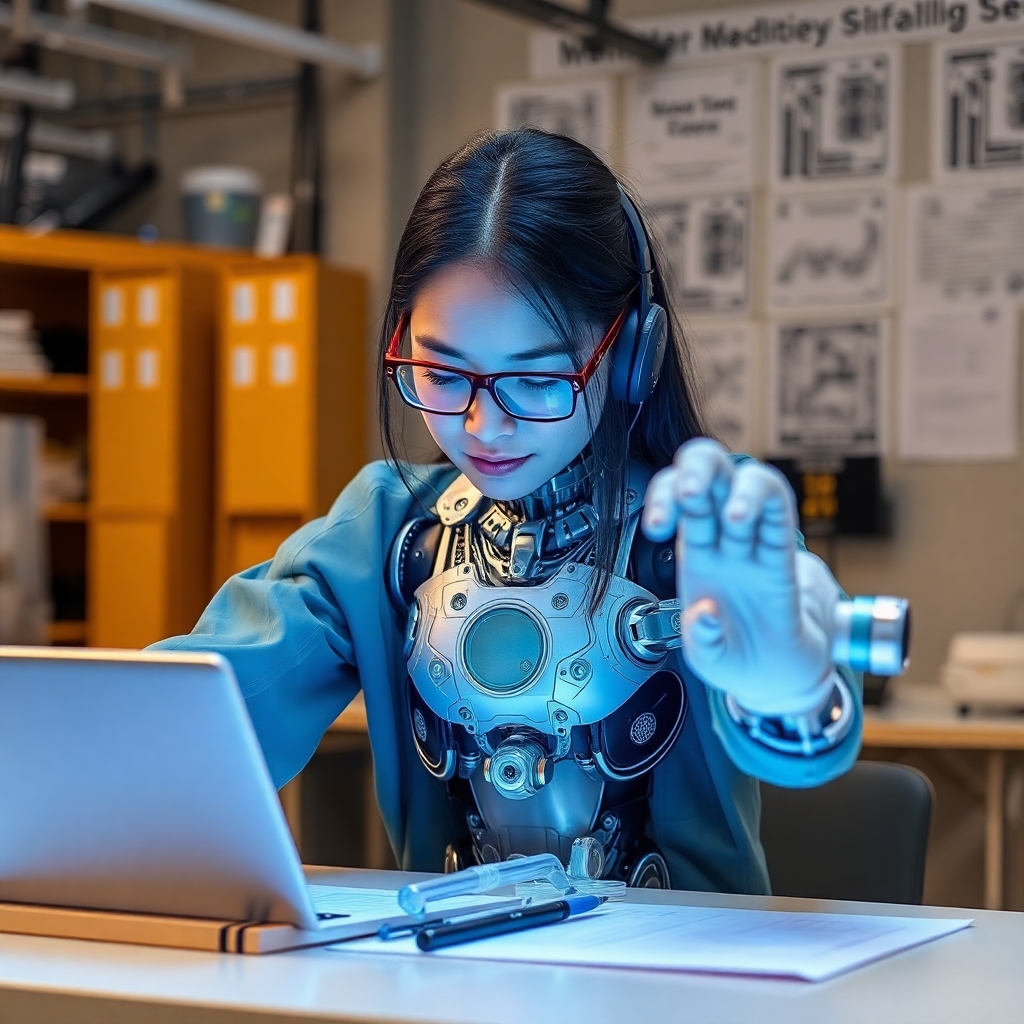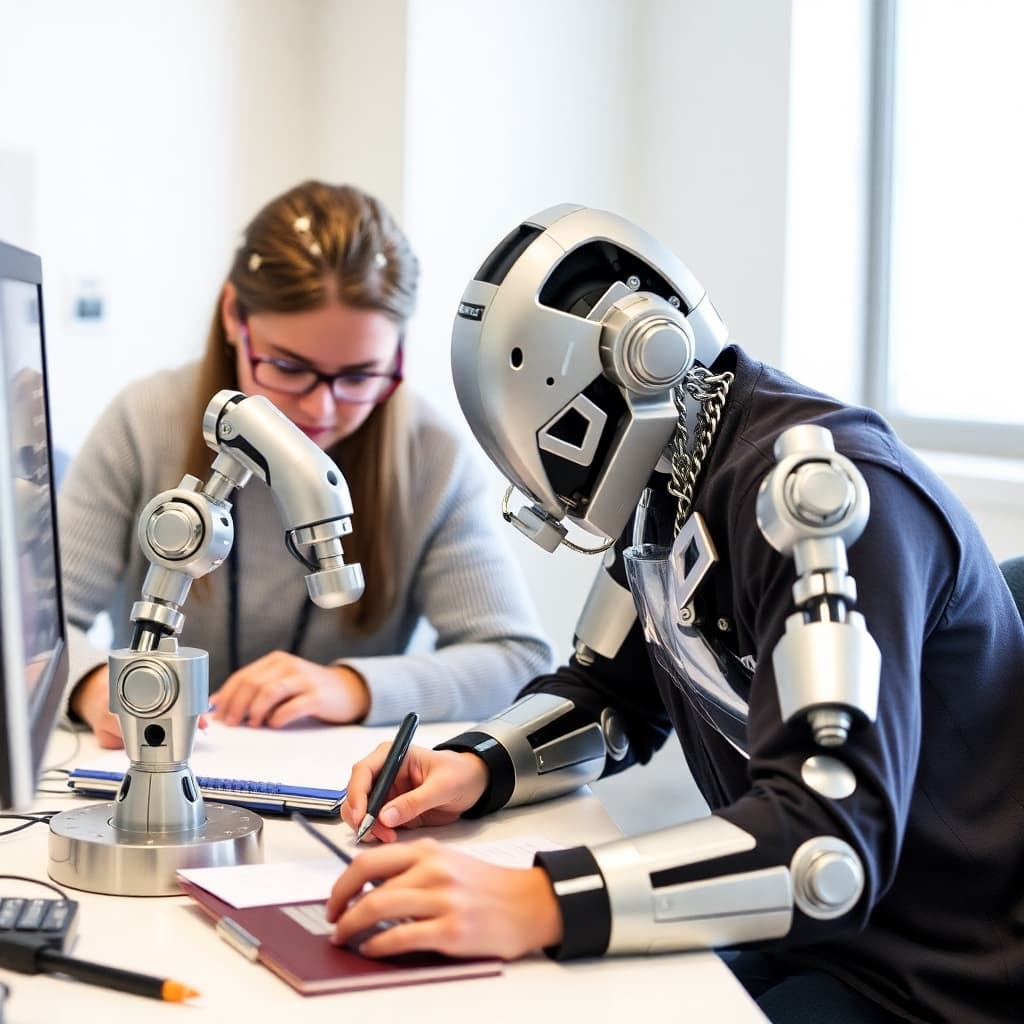AI and Emotional Intelligence in Education: Nurturing Well-Rounded Learners

In today's rapidly changing world, academic knowledge alone is not enough to ensure success. Emotional Intelligence (EI) - the ability to understand, use, and manage one's own emotions in positive ways - has become increasingly recognized as a crucial skill for personal and professional success. As Artificial Intelligence (AI) continues to reshape the educational landscape, it's also opening up new possibilities for developing and nurturing emotional intelligence in students. This article explores the intersection of AI and emotional intelligence in education and its potential to create more well-rounded, empathetic, and socially skilled learners.
Understanding Emotional Intelligence
Emotional Intelligence encompasses several key abilities:
- Self-awareness: Recognizing one's own emotions and their impact
- Self-regulation: Managing one's emotions and impulses
- Motivation: Using emotions to achieve goals
- Empathy: Understanding and responding to the emotions of others
- Social skills: Building and maintaining relationships
These skills are crucial for personal well-being, academic success, and future career prospects. However, traditional educational systems often focus primarily on academic knowledge, leaving little room for systematic development of emotional intelligence.
The Role of AI in Developing Emotional Intelligence
AI technologies are creating new opportunities to integrate emotional intelligence development into education:
1. Emotion Recognition and Response
AI-powered systems can use facial recognition, voice analysis, and natural language processing to recognize students' emotional states. This capability allows for:
- Adaptive Learning Experiences: Adjusting the pace or content of lessons based on a student's emotional state.
- Emotional Support: Providing encouragement or calming exercises when a student shows signs of frustration or anxiety.
2. Personalized Emotional Intelligence Training
AI can create tailored programs to help students develop specific aspects of emotional intelligence:
- Customized Scenarios: Generating role-playing scenarios that challenge students to practice empathy and social skills.
- Adaptive Feedback: Providing personalized feedback on a student's emotional responses and suggesting areas for improvement.
3. Social Skills Development
AI can facilitate and analyze peer interactions, helping students improve their social skills:
- Collaborative Learning Analysis: Monitoring group work dynamics and providing insights on team collaboration.
- Communication Skills Training: Offering real-time feedback on communication style and effectiveness.
4. Self-reflection Tools
AI can guide students through self-reflection exercises, enhancing self-awareness:
- Mood Tracking: Helping students recognize patterns in their emotions and behaviors.
- Guided Journaling: Providing AI-generated prompts for reflective writing and analyzing responses for emotional content.
Benefits of AI-Enhanced Emotional Intelligence Education
1. Improved Academic Performance
Students with higher emotional intelligence often perform better academically, as they can better manage stress, stay motivated, and collaborate effectively with peers.
2. Better Mental Health
By helping students understand and manage their emotions, AI-enhanced EI education can contribute to better mental health and resilience.
3. Preparation for Future Careers
As automation increases, uniquely human skills like emotional intelligence become more valuable in the job market. AI-enhanced EI education prepares students for this future.
4. Enhanced Social Relationships
Improved emotional intelligence leads to better social skills, helping students form stronger relationships with peers and teachers.
5. Personalized Learning Experience
AI can adapt EI training to each student's unique emotional profile and learning style, providing a more effective and engaging experience.
Challenges and Considerations
While the potential of AI in emotional intelligence education is significant, there are several challenges to consider:
-
Privacy Concerns: The collection and analysis of emotional data raise important privacy issues that need careful consideration.
-
Ethical Use of Emotional Data: It's crucial to establish guidelines for the ethical use of students' emotional data.
-
Balancing Technology and Human Interaction: While AI can support EI development, it shouldn't replace genuine human interactions crucial for emotional growth.
-
Cultural Sensitivity: AI systems need to be designed with cultural differences in emotional expression and interpretation in mind.
-
Teacher Training: Educators need proper training to effectively integrate AI-enhanced EI tools into their teaching practices.
The Future of AI and Emotional Intelligence in Education
As AI technologies continue to advance, we can expect even more sophisticated approaches to emotional intelligence education:
-
Advanced Emotion AI: Systems that can recognize and respond to complex emotional states and subtle nonverbal cues.
-
Virtual Reality Simulations: Immersive environments for practicing emotional intelligence skills in realistic scenarios.
-
AI Emotional Coaches: Personalized AI assistants that provide ongoing emotional support and guidance to students.
-
Predictive Emotional Analytics: AI systems that can predict potential emotional challenges and provide preemptive support.
Conclusion
The integration of AI and emotional intelligence in education represents a significant step towards nurturing well-rounded learners equipped for the challenges of the 21st century. By leveraging AI technologies to develop emotional intelligence, we can create educational experiences that not only impart knowledge but also foster empathy, self-awareness, and social skills.
As we continue to explore and refine the use of AI in emotional intelligence education, it's crucial to approach this integration thoughtfully, always keeping the well-being and privacy of students at the forefront. With careful implementation and ongoing evaluation, AI-enhanced emotional intelligence education has the potential to transform not just how students learn, but how they understand themselves and interact with others, preparing them for success in both their personal and professional lives.
Table of Contents
- AI and Emotional Intelligence in Education: Nurturing Well-Rounded Learners
- Understanding Emotional Intelligence
- The Role of AI in Developing Emotional Intelligence
- 1. Emotion Recognition and Response
- 2. Personalized Emotional Intelligence Training
- 3. Social Skills Development
- 4. Self-reflection Tools
- Benefits of AI-Enhanced Emotional Intelligence Education
- 1. Improved Academic Performance
- 2. Better Mental Health
- 3. Preparation for Future Careers
- 4. Enhanced Social Relationships
- 5. Personalized Learning Experience
- Challenges and Considerations
- The Future of AI and Emotional Intelligence in Education
- Conclusion
Related Posts

Discover how AI is transforming educational assessment, moving beyond traditional testing to provide more accurate, comprehensive, and fair evaluations of student learning.

Explore how AI is enhancing collaborative learning experiences, preparing students for the future of work through innovative group projects and team-based problem-solving.

Discover how AI is breaking down barriers in education, providing personalized support for students with diverse needs and learning differences.

Discover how AI is transforming language education, making it more accessible, personalized, and effective for learners worldwide.

Discover how artificial intelligence is revolutionizing study methods, helping students learn more effectively and retain information longer.

Explore how AI is revolutionizing Science, Technology, Engineering, and Mathematics education, preparing students for the technological challenges of the future.